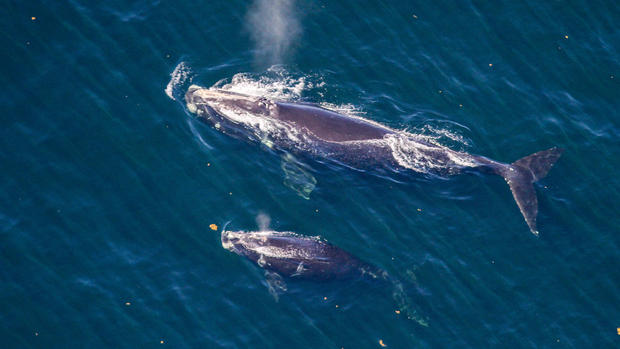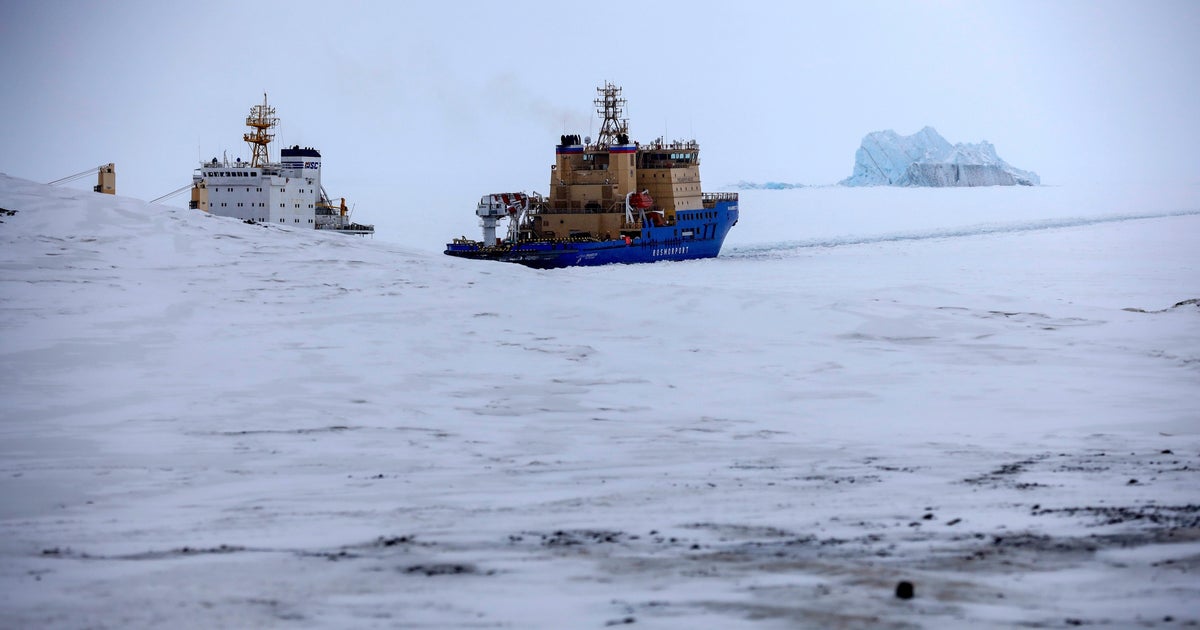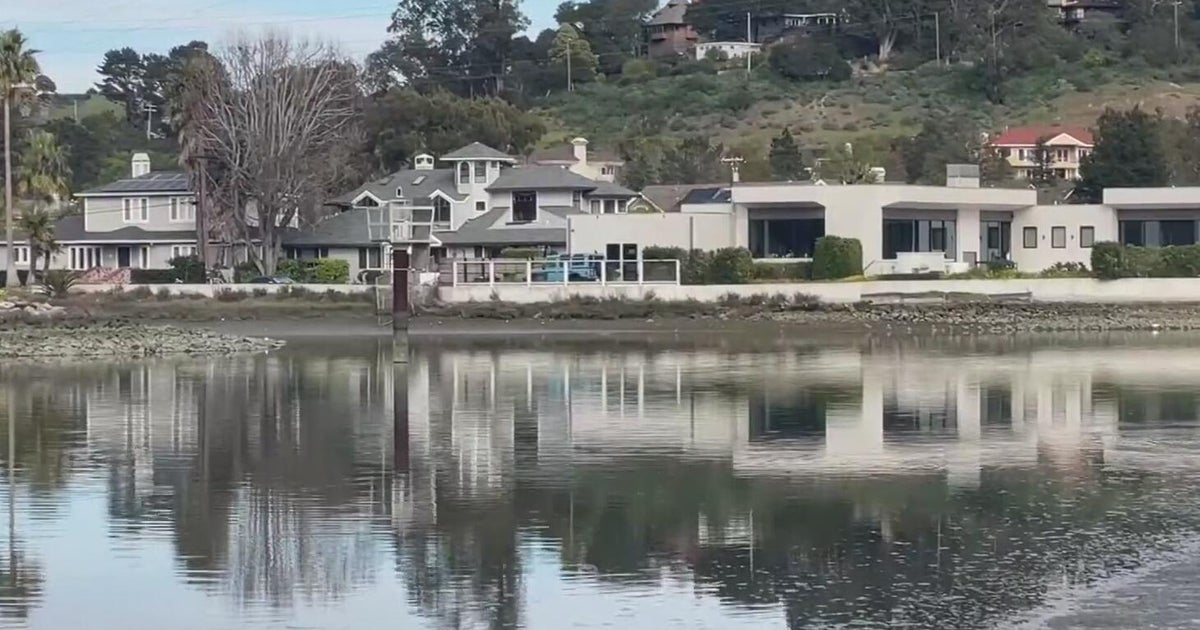Biden administration withdraws proposal that aimed to save whales off East Coast by slowing ship speeds
The federal government is withdrawing a proposal that would require more ships to slow down in East Coast waters to try to save a vanishing species of whale, officials said Wednesday.
The move in the waning days of the Biden administration will leave the endangered North Atlantic right whale vulnerable to extinction as the Trump administration is signaling a shift from environmental conservation to support for marine industries, conservation groups said. But federal authorities said there's no way to implement the rules before President-elect Donald Trump takes office on Monday.
The new vessel speed rules proposed by the National Marine Fisheries Service more than two years ago have been the topic of much debate among shippers, commercial fishermen and wildlife conservationists, who all have a stake in the whale's fate. The whale, which is vulnerable to collisions with ships, numbers less than 380 and its population has plummeted in recent years.
The Trump administration is likely to be less enthusiastic about new restrictions on shipping, said Gib Brogan, a campaign director with conservation group Oceana.
"While we've been waiting and watching the proposed rule move forward, and ultimately stall, we've watched on the water outcomes of the current insufficient protections," Brogan said. "And we've watched whales be killed by speeding boats."
Thousands of public comments
The proposed rules would have expanded slow zones off the East Coast as well as the size classes of boats and ships that must slow down.
The fisheries service received about 90,000 public comments about them, according to documents set to be published in the Federal Register on Thursday. The filing says the service "does not have sufficient time to finalize this regulation in this administration due to the scope and volume of public comments."
The final rule to modify North Atlantic right whale vessel speed regulations had been with the White House Office of Information and Regulatory Affairs, which reviews new regulations before they are implemented, said Katherine Silverstein, a spokesperson for the National Marine Fisheries Service. She confirmed the fisheries service withdrew the rule on Wednesday.
Conservation groups have long argued that tighter ship speed rules are necessary to protect the whales, in part because warm ocean waters appear to be causing the animals to stray from protected zones. The federal government first announced the proposal in summer 2022 and a coalition of environmental groups sued to try to speed up the finalization of the rules last year.
Some shippers, however, have argued that the rules could be economically devastating to boating and shipping industries.
"This is a huge step forward for American boat manufacturers, coastal economies, and outdoor enthusiasts across the U.S.," said Frank Hugelmeyer, president and CEO of the National Marine Manufacturers Association, the largest trade association in North America for the recreational boating industry. "The way this rule was drafted gave rulemaking a bad name and created an entirely preventable dynamic."
What to know about North Atlantic right whales
Right whales are massive creatures that grow to be between 45 and 52 feet in length. Adults can weigh up to 70 tons, according to NOAA. They're identified by signature white calluses on the head.
They were once numerous off the East Coast, but their numbers were devastated during the commercial whaling era. They have been a protected species for many years but have been slow to recover.
The whales migrate from their calving grounds off Florida and Georgia to feeding grounds off New England and Canada. The journey has become increasingly perilous as the tiny organisms they eat seek colder waters, causing the whales to leave established protected areas, scientists have said.
Earlier this year, scientists were concerned after seeing nearly a quarter of the world's population of the critically endangered North Atlantic right whales in an unusual and potentially dangerous spot for them, CBS News Boston reported.
The New England Aquarium said at least 82 whales were observed in late July and August during research flights south of New York's Long Island — hundreds of miles away from New England and Canadian waters where they are typically seen in the summer.
Aquarium scientist Katherine McKenna told the station that scientists didn't know for sure why the whales were in that area, but they seemed to be following food.
"They're kind of becoming more unpredictable with what they're doing in response to how the ocean conditions are changing," she said.
Why these whales are important
Whales are at the top of the ocean's food chain and they help capture carbon from the atmosphere, according to the international nonprofit World Wildlife Fund.
The right whale is among six out of the 13 great whale species that are classified as endangered or vulnerable.
They numbered more than 480 in 2010, but that fell by more than 25% over the following decade. It has ticked up slightly more recently, but the animal remains critically endangered. Vessel strikes are "a leading cause of the species' decline," the National Marine Fisheries Service said in documents.
Conservation groups that have pushed for the finalization of slower ship speed rules said they were motivated in part by documented collision deaths of right whales in recent years. In one much-publicized case last year, a calf stranded off the state of Georgia had head injuries consistent with a vessel strike, according to government investigators.




